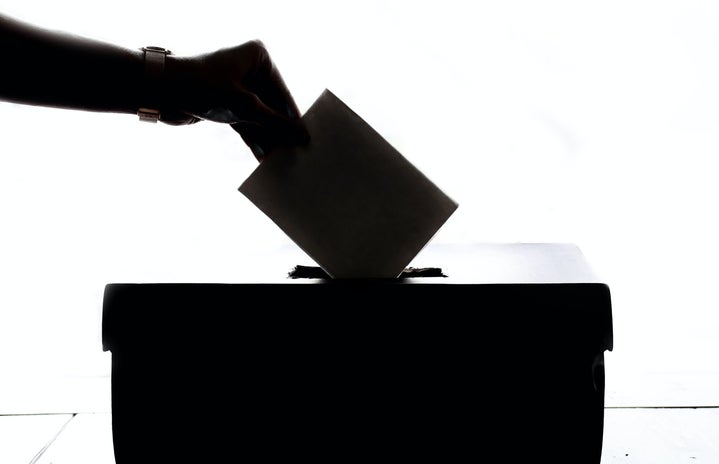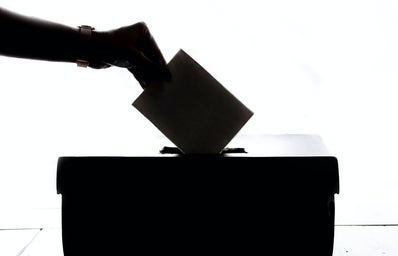Puerto Rico, a United States territory (fancy word for colony), has had its fair share of disheartening years. Debt, hurricanes, earthquakes, and a weak political system that cares little for its citizens, are a few of the variables that have driven people to leave their country. Every day, those of us left, fight the feeling of hopelessness when it comes to loving and wanting to save our island. We quickly became a tired community, at the edge of a precipice, with the floor crumbling underneath us, and we had no way of stopping it.
Puerto Rico’s quality of life has dwindled to great extents over the years, it is believed that this is one of the reasons why more and more people leave everyday and why, those that stay, rarely start families. As a consequence, the island has become “un pais envejecido” as statistically shown and reported by various sources like “El Nuevo Día” and PR’s own University of Puerto Rico, which means that the population on the island is mostly elders (65+ in age). The environment many of us in the young generation has grown up with has placed a heavy weight on our hearts, one filled with resentment, betrayal, pain, and sadness. Many from the younger generations, filled to the brim with certain ideals from the dominating older generations, believed that there was no change to be made. We were stuck, and truly saw no way out; it was all we had learned, all they taught us.
Image retrieved from Claridad
For the better part of half a century, our island has been governed by the same two political parties. Bipartidism has had its claws in our system for so long that it almost seems like there’s no light at the end of the tunnel. Both administrations have divided themselves, since the beginning of our colonial status, by preaching about ‘maintaining the status quo’ and ‘statehood’. In the midst of their own ambition, egotistical wants, and a debate on status that most Puerto Ricans are too busy trying to survive to care for, the Puerto Rican people have suffered the long-lasting effects of decisions, or lack thereof when it mattered, of these two parties.
The Popular Democratic Party and the New Progressive Party (PPD and PNP by their Spanish acronyms) have played with our government, our island, and our people, bouncing the ball between their administrations, without ever truly working for a better Puerto Rico. As Lawyer and Columnist Rolando Emmanuelli expresses, they are the artists to Puerto Rico’s aching reality nowadays.
Despite all this, recent events have driven hope to the doors of our citizens. As local artists and young people speak up against the failing bipartidism, and as new political parties rise with proposals that attend to the growing worries of the country, beyond the usual ‘status’ debate, a new wave of voters have been called to exercise their rights.
On the eve of the elections, just before voting inscriptions closed, worldwide artist Bad Bunny (Benito Martinez Ocasio), a distinguished Puerto Rican who is also tired of the state of our island, used his different social media platforms to invite not only his fans, but all of Puerto Rico to both register and vote on the upcoming elections. He also expressed, through a series of billboards, his reasoning for opposing the current ruling party. The billboards had different expressions referring to the poor decision-making made by the governing administration. In an interview, Benito was clear on his stance; he did not care for politics, rather, politics made it so that he had no choice but to. Yeah, Benito might also be Bad Bunny, world renowned musician but, as elections draw close, he’s sure to use his privilege to speak up, not as an artist, but as another Puerto Rican who wants change.
His platform is a plus. One that I truly believe made quite an impact. Thousands of people registered to vote within the month of September, a huge chunk of them, probably did so following the artist’s call to action.
Image retrieved from Telemundo Puerto Rico
As a political science student who has both studied and lived through the aftermath of the decisions made by both political parties, I can say that this change has been a long time coming. I cannot, in good conscience, say that public figures like Benito speaking up deserve all the credit, however, I believe that a big part of the recent mobilization does come from people like him that use their platforms to educate others. In Puerto Rico, as the inscription deadline drew close, more and more public figures began to speak up as well; Dennise Quiñones, Rafa Pabón, Didi Romero, and many others used their platforms to encourage people and inspire change. This created a domino effect that had even those closest to me, whom I sometimes had to explain politics to in ‘arroz y habichuelas’ meaning as simply as possible, itching to get registered to vote.
Many organizations and movements, such as Prende tu Voto, Somos Más and a variety of student organizations across many universities, began speaking up on voting, educating others, and helping organize inscription events. Social media and everyday life quickly became bombarded with this topic.
I had never seen anything like it.
It gave me hope, it gave us the desire to make the change happen. It was no longer about complaining, knowing, and watching it happen. We were seeing young voters waiting in mile-long lines to register to vote, and even older generations were cueing up. Some waited as long as eight hours to be registered. Even when the State Election Committee (CEE) was hard to get to, hard to deal with, and sometimes even unwilling due to lack of personnel and bureaucratic processes that made giving better service to aspiring voters difficult, Puerto Ricans did not back down. There was a fire that had been lit up, unstoppable. To the very last day, September 21, people flooded CEE installations, eager to register.
I remember a coworker asking me what I thought of the sudden mobilization. He said: “It’s silly that now everyone wants to register, that’s just a trend. They’re just following what X figure said, they’re all charros.” He said it didn’t make sense since he knew of a lot of people that knew nothing of politics, and were registering to vote now that it was trending.
That’s where I got to him.
“That’s just it, isn’t it?” I remember telling him, “Why do you think they aren’t well educated on their own country’s politics? I don’t think it’s bad that it’s a trend. Maybe they don’t know, maybe they’re doing it because their favorite artists are telling them to or because their friends did it. Does it matter? The important thing is that they’re doing it. That is a change, that is one step closer to being better than we were.” I don’t think people understand how impactful and important it is to celebrate this win, to ride these waves, and use them in our favor.
Images taken by me, showing the long lines at the registration building in San Juan.
We have an education problem, one that I am sure is on purpose. Many Puerto Ricans don’t know their history and don’t quite understand politics because it’s been hidden behind a veil of colonization and elitist corruption. That has factored into the people’s complacency about the way we are treated, because we are led to believe that we have no power to change it. Now we’re being told that we do, we have the power, we are the change. What does it matter who is telling us? What does it matter if we don’t know anything about politics? People being exposed to wide media coverage on the elections, like the one we are currently experiencing, will slowly help them become better informed.
“What more do they need to know about politics?” I told my coworker. It was a particularly slow shift, we spent almost two hours talking about politics. “It is enough to know it affects them, they can make a choice when the debates start.” Of course, it is more complicated than that, but small wins, right? To my surprise, he ended up asking question after question, nodding at my words. It all started with him questioning and making fun of those following the “trend,” but it ended up with him learning much more. About the parties, the history, our precarious position, the candidates we had, the beliefs I held.
“What do they need to know about politics?” I repeated to him. “It’s not about fancy, difficult words, or 100-page documents that official accounts post when talking about a project that will affect us, but that no one makes sure we truly understand how it will.” My heart was aching by then, because what do we truly have to understand about the red tape when we live it? “You lived Hurricane Irma, you lived María, the power outages then, the power outages now, you saw how a governor talked about us in 2019.” I continued, “The closed schools, the federal investigations, the fragility of our education system, of our healthcare system. We live it. What the hell more do we need to live to know that it has to change?”
“This isn’t a trend,” I said. “It’s people remembering who brought us to where we are now and learning they do have more than their voices to speak up, they have the power to take action.”
Looking back, there was no greater example to my words than the scene unfolding at that moment. He learned about registration to vote by questioning the “trend,” the call to action by public figures, yet, the more he saw it appear, the more he learned from me, bit by bit; he was interested in knowing more and that’s exactly what I think, what I hope, will happen with everyone.
I write this with my heart because I truly believe that, at this moment, the events we are seeing unfold are not anything we should take lightly. Puerto Rico is still ours, there is still hope, and I’ll repeat it however many times it’s needed, no matter how corny it may sound. Because even my grandmother, after spending her entire life being a proud Popular Democratic Party follower, told me she was tired. Because my little sister had to move schools when they closed down hers, splitting groups and friends apart. Because I was fifteen and, even though I had school the next day, three months after Hurricane Maria, I was awake at three in the morning, sweeping water outside of my house so my mother could sleep because she had work the next day and we had no roof.
Because to this day, seven years after the natural disaster, our government denies their incompetence and failure to send aid during the aftermath. They deny the lives it cost. Who cares if it’s a trend? Maybe this is the one that brings out change. Maybe this is the one that tells us we do not have to leave, that we can make it work, that we can fix what years of negligence have done.
For you and for every Puerto Rican who knows what it’s like to live in constant battle within our island, go vote on November 5th.


